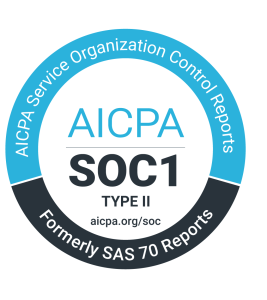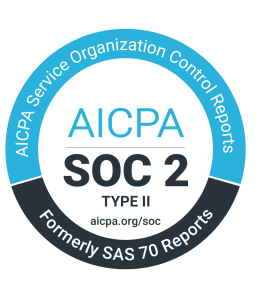When it comes to the regulated cannabis market, dispensary taxes are always going to be controversial. On the one hand, most retail products are subject to sales taxes and people generally accept the need for some taxes to fund our governments, public safety agencies, and schools. On the other hand, what constitutes “fair taxes” is open to vigorous debate. When it comes to California’s dispensary taxes, few (if any) consumers are happy about them. As a result, the law of unintended consequences led to California’s thriving underground cannabis market. It is a critical issue for legitimate dispensary owners who feel they can’t compete with the lower-priced and potentially unsafe illegal flowers and products found in unlicensed dispensaries.
California Cannabis Taxes, Explained
In 1996, California was the first state in the nation to legalize medical marijuana. Proposition 215, AKA The Compassionate Use Act, passed as a voter-based ballot initiative. Californians approved the proposal by a ten-point margin sending a clear signal to government officials that attitudes were changing. Prop 215 established the policy of Medical Marijuana Cards for certain medical conditions and created “Collectives” where patients and caregivers could legally purchase cannabis. Technically, transactions under Prop 215 were not taxable sales, rather, they were considered “donations” to the Collective to which you had to become a registered member.
Fast forward to November 2016 and the passage of Proposition 64, officially named the Control, Regulate and Tax Adult Use of Marijuana Act. The voter initiative passed with 57 percent approval leading to legal, adult-use cannabis sales on January 1, 2018. The cold, technocratic name of the Act served as a warning for what was about to follow. In addition to creating legal dispensaries and other licensing designations, regulatory oversight, and phased testing requirements, adult-use cannabis sales imposed a 15 percent excise tax on the gross retail receipts of cannabis products. Prop 64 requires licensed distribution companies to calculate and collect the amount of excise tax due on cannabis products from both cultivators and dispensaries and independent delivery services.
For farmers, Prop 64 also mandated a cultivation tax of $9.25 per dry-weight ounce for flowers, and $2.75 per dry-weight ounce for leaves, with exceptions for certain medical cannabis sales and cultivation. It’s important to understand that these initial excise taxes were in addition to the normal state sales tax of 7.25 percent and a local sales tax of up to 1 percent. Incredibly, the tax burden doesn’t stop there. Local municipal cannabis taxes range anywhere from zero to 20 percent for adult-use sales which directly and negatively impact dispensaries. Medicinal purchases (with a valid MMJ card) are exempt from the additional local cannabis taxes. The bottom line is that dispensaries feel the economic pressure to keep prices as low to minimize the state and local tax burdens on their customers. And of course, this not only cuts into a dispensary’s profit margins, but the taxes also create unpleasant customer-relations issues.
Dispensary Taxes Increase During COVID-19
As originally written, Prop 64 increases cannabis excise tax rates based on the original market growth estimates. Subject to change every six months as of January 2018, the California Department of Tax and Fee Administration (CDTFA) announced that on January 1, 2020, the markup rate for the excise tax would increase from 60 percent to 80 percent. The CDTFA sets the tax based on its estimate of the average ratio of retail prices to the wholesale price which defines the markup rate. This is the basis for calculating California’s 15 percent excise tax. The new rate represents a net 12.5 percent increase in excise taxes. The new rates also increased the cultivation tax from $9.25 to $9.65 for an ounce of flower and from $2.75 to $2.87 for an ounce of leaves. It also increased the markup for fresh marijuana plant material increasing from $1.29 to $1.35 per ounce. Fortunately, the CDTFA did not raise taxes further in 2020.
As expected, dispensary owners, cultivators, manufacturers, and professional organizations were livid at the increases while trying to fight the resilient, illegal cannabis market. The California Cannabis Industry Association (CCIA) issued a blistering response stating that “As California’s regulated market spirals towards collapse from taxes on cannabis consumers…and a thriving illicit market, we believe that the CDTFA’s decision to increase tax burdens on compliant cannabis operators is counter to developing a safe industry. Widening the price disparity gap between illicit and regulated products will further drive consumers to the illicit market at a time when illicit products are demonstrably putting people’s lives at risk.”
CalNORML also issued a statement condemning the decision. “This is hardly the time to make legal products more expensive,” said Cal NORML Director Dale Gieringer. “California already has the most expensive legal market in the country. Legal cannabis needs to be made more affordable in order to compete more effectively with the unregulated black market.”
Not unexpectedly, initial cannabis tax receipts fell far short from the original estimates for implementing Prop 64. While higher than 2019, the CDTFA reported 2020 first quarter excise taxes generated $68.3 million in revenue, and the cultivation tax generated $16.4 million. Sales taxes generated $50.2 million. Second-quarter numbers were slightly higher at $101.8 million, and the cultivation tax generated $22.9 million. Sales tax totaled $83.7 million in revenue for Q2.
There is some good news. Governor Newsom signed Assembly Bill 1872 that eliminates state cultivation and excise tax increases for 2021. CCIA Executive Director Lindsay Robinson responded positively by saying “Like so many, the cannabis industry has faced a series of unexpected challenges and setbacks in 2020. We look forward to continuing to work with the Newsom Administration, and the Legislature, as we pursue a robust policy agenda in 2021.”
In even better news for dispensaries and their patients, as of March 2020, dispensaries may donate free medicinal cannabis products to qualified patients and caregivers. As a retailer, when donating free medicinal cannabis, the cannabis excise tax and use tax do not apply. According to California’s Bureau of Cannabis Control regulations, compliance requirements include:
- Donated cannabis and cannabis products must move through the licensed supply chain in the same way as cannabis and cannabis products for sale and meet all applicable requirements for cultivation, manufacturing, distribution, laboratory testing, packaging and labeling.
- Cannabis and cannabis products that do not pass the required regulatory compliance testing cannot be donated.
- Only licensees authorized for retail activity, or nonprofits working in conjunction with those licensed retailers, may provide donated products directly to qualified medicinal consumers.
There is little doubt that California’s cannabis tax policy needs to support, rather than stifle, legal dispensaries. The entire cannabis community can play a role, and we encourage cannabis professionals to inform and educate their elected officials at all levels of government in the Golden State. Sky-high taxes lead directly to burgeoning underground cannabis sales while penalizing profits for legitimate dispensary owners. In the end, while taxes are needed in some form, there must be balance for dispensaries and the entire regulated marketplace.
To learn more about California cannabis taxes, visit the CDTFA website.



